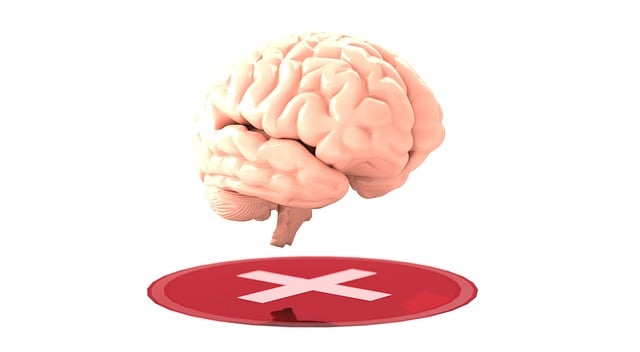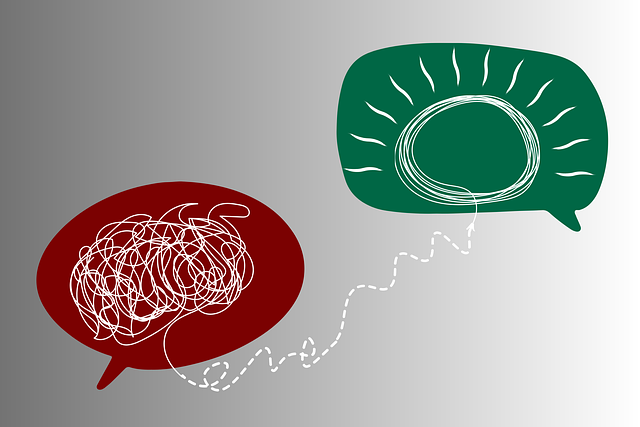Mental wellness involves emotional, psychological, and social well-being, maintained through self-care practices like those taught by Northglenn Dialectical Behavioral Therapy (DBT). DBT equips individuals with skills in emotional regulation, distress tolerance, mindfulness, and interpersonal effectiveness, reducing mental illness stigma and enhancing awareness campaigns. Personalized self-care routines, guided by DBT, involve introspecting and identifying stress-reducing activities like mindfulness meditation and journaling, fostering resilience and improving overall well-being. Integrating DBT techniques into daily life promotes long-term mental wellness and positive thinking through emotional healing and constructive behaviors.
In today’s fast-paced world, prioritizing mental wellness is essential. This article guides you through developing a robust self-care routine using principles from Dialectical Behavioral Therapy (DBT), specifically tailored for individuals in Northglenn.
We’ll explore how DBT can help navigate emotions, build healthy coping mechanisms, and foster long-term wellbeing. By understanding your mental health needs, you can craft personalized self-care rituals that nurture your mind, body, and spirit.
- Understanding Mental Wellness and Self-Care
- The Role of Dialectical Behavioral Therapy (DBT) in Building a Routine
- Crafting Your Personalized Self-Care Routine
- Integrating DBT Techniques into Daily Life for Long-Term Wellbeing
Understanding Mental Wellness and Self-Care

Mental wellness is a crucial aspect of overall health and well-being, encompassing our emotional, psychological, and social state. It involves understanding and managing our thoughts, feelings, and behaviors in ways that promote resilience and healthy coping mechanisms. Self-care plays a pivotal role in maintaining mental wellness by providing individuals with the tools to navigate stress, anxiety, and other challenges. It’s about taking proactive steps to nurture ourselves both mentally and emotionally.
In today’s fast-paced world, prioritizing self-care is essential for fostering good mental health. The Northglenn Dialectical Behavioral Therapy (DBT) approach emphasizes the importance of Self-Care Practices as a means to reduce the Mental Illness Stigma and enhance public Awareness Campaigns Development. DBT encourages individuals to develop skills in emotional regulation, distress tolerance, mindfulness, and interpersonal effectiveness, all of which contribute to a robust self-care routine. By integrating these practices into daily life, folks can effectively manage their mental wellness and cultivate a more balanced and fulfilling existence.
The Role of Dialectical Behavioral Therapy (DBT) in Building a Routine

Dialectical Behavioral Therapy (DBT) plays a significant role in developing a robust mental wellness self-care routine, especially for those navigating the challenges of mental illness. This evidence-based therapy offers practical skills and tools to help individuals manage intense emotions, improve interpersonal effectiveness, and enhance overall well-being. By participating in DBT, Northglenn residents can benefit from specialized therapy aimed at reducing the stigma associated with mental health struggles.
The structured nature of DBT encourages clients to create personalized self-care routines, incorporating techniques like mindfulness meditation and journaling exercises. Mental wellness journaling allows individuals to reflect on their emotions, track progress, and identify triggers, fostering a deeper understanding of themselves. Mindfulness meditation practices promote present-moment awareness, helping to calm the mind and reduce anxiety. These DBT components contribute to a holistic self-care routine, empowering Northglenn residents to take control of their mental health and overall quality of life.
Crafting Your Personalized Self-Care Routine

Creating a personalized self-care routine is a transformative journey that empowers individuals to prioritize their mental wellness. This process involves introspecting and identifying activities that bring comfort, reduce stress, and enhance overall well-being. In Northglenn Dialectical Behavioral Therapy (DBT) sessions, therapists guide clients in designing tailored routines that address specific needs. Consider your lifestyle, preferences, and triggers when crafting your routine; it could include a mix of physical activities, mindfulness practices, creative outlets, or social interactions.
The key is to make it sustainable and enjoyable. Incorporate activities that nurture self-love, such as meditation, journaling, spending time in nature, or engaging in hobbies. Mental health education programs design often emphasize the importance of consistency. Regularly schedule these self-care practices into your week, treating them as non-negotiable appointments with yourself. By doing so, you actively contribute to managing stress and cultivating a resilient mental state, all while benefitting from the positive impact of Northglenn DBT therapy and potentially exploring new avenues through Mental Wellness Podcast Series production or participation in online communities focused on Mental Health Awareness.
Integrating DBT Techniques into Daily Life for Long-Term Wellbeing

Integrating Dialectical Behavioral Therapy (DBT) techniques into your daily life is a powerful strategy for cultivating long-term mental wellness and fostering positive thinking. This therapeutic approach, often associated with Northglenn Dialectical Behavioral Therapy centers, emphasizes emotional healing processes by teaching individuals valuable skills to navigate distressing emotions effectively. DBT encourages mindfulness, self-awareness, and healthy coping mechanisms, enabling people to build resilience and enhance their overall well-being.
By incorporating DBT practices into your self-care routine development, you can learn to accept and validate your emotions while also engaging in constructive behaviors. This includes techniques such as distress tolerance strategies, emotion regulation skills, and effective interpersonal communication. These tools empower individuals to respond to challenges with balance, ensuring emotional healing processes become an integral part of their daily lives, ultimately leading to sustained mental health improvements.
Developing a mental wellness self-care routine, with guidance from evidence-based practices like Northglenn Dialectical Behavioral Therapy (DBT), can significantly enhance overall wellbeing. By integrating DBT techniques into daily life, individuals in Northglenn can navigate stress, regulate emotions, and foster healthy coping mechanisms. Crafting a personalized self-care routine allows for a holistic approach, addressing mental health challenges while promoting long-term resilience and balance.








